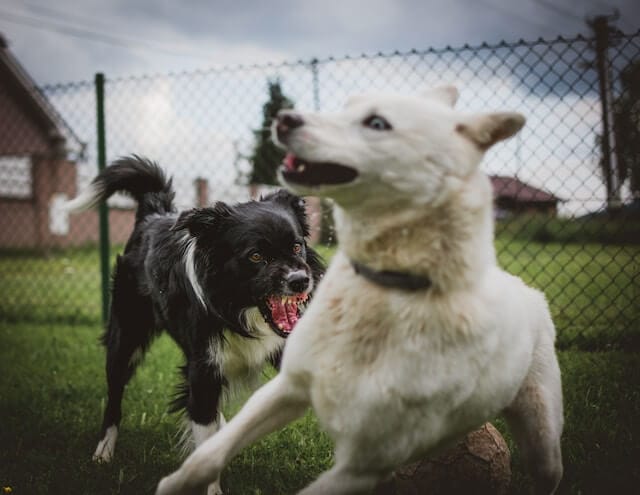
Whilst dogs are often called man’s best friend, they can sometimes be aggressive. In fact, dog attacks can be dangerous and traumatizing. They often leave victims with physical injuries and emotional scars that can last a lifetime. This is why you can come across helpful tips publicized during National Dog Bite Prevention Week. In this article, we’ll provide some practical advice for defending yourself against a dog attack.
Understand The Importance Of Responding Correctly
An attack can be terrifying and potentially life-threatening, and reacting inappropriately can escalate the situation. Knowing what to do could save your life, or at least minimize the severity of any injuries. It’s important to understand that dogs aren’t inherently aggressive or dangerous animals. In many cases, attacks occur because the dog feels threatened or scared.
By understanding how to read a dog’s body language and behavior, you can prevent an attack from happening altogether. Finally, knowing how to respond correctly can help protect others around you. If you’re out walking with your children and a strange dog starts acting aggressively, the right actions could keep everyone safe.
Defend Your Rights And Take Legal Action
After a dog attack, you have the right to take legal action against the owner or person responsible for it. This can include filing a personal injury lawsuit with the help of a lawyer. This may help you recover damages for medical bills, lost wages, pain and suffering, and other losses. The website of a local dog bites lawyer will enable you to access live chat facilities or request a free case evaluation. You can view client testimonials, related posts, FAQs, and fee information.
To prepare for potential legal action, collect as much evidence as possible. Take photos of your injuries immediately after the attack occurs, and obtain contact information from any witnesses who saw what happened. Next, report the attack to local authorities, such as animal control or the police department. They can investigate the incident and discover whether the dog has a history of aggression.
Recognize Aggressive Behavior
Dogs often give off warning signs well before they actually attack, so recognizing them could prevent an incident from occurring. Some common examples include growling, baring teeth, lunging, and excessive barking. These behaviors are all indicators that the dog is feeling threatened or aggressive. Unfortunately, not all dogs exhibit aggressive behavior before they attack. Some may simply spring into action without any warning at all. However, familiarizing yourself with the common warning signs can ensure you’re better equipped to protect yourself.
Let’s assume you encounter a stray dog or unfamiliar animal on your property. If so, it’s always best to err on the side of caution and assume they may become hostile. Stay calm and avoid making direct eye contact with the animal, as this can be seen as a threat. If possible, slowly back away from the animal. While you do this, keep an eye on their movements in case they exhibit any warning signs of aggression.

Use Self-Defense Techniques
To defend yourself from a dog attack, try to stay calm, and avoid any sudden movements. Dogs are naturally territorial animals and may perceive you as a threat if you behave aggressively or erratically. Let’s assume the dog is already attacking you. In that situation, it’s important to fight back with whatever means necessary.
Use anything that can serve as a shield against its bites, such as a jacket or backpack. If the dog has bitten your arm or leg, use your other hand or foot to kick and hit it on its most vulnerable spots (like its nose, eyes, and ears).
Don’t pull away from the bite force, since this will only cause more physical damage. Instead, push towards the direction of the animal’s mouth, while holding onto something sturdy (like a fence or tree) for leverage. Dogs tend to latch onto their prey until they’ve exhausted all of their energy. For this reason, don’t give up fighting back too soon. When in doubt, create loud noises such as shouting ‘’Stop!’’ or “No!” Also, clapping your hands together loudly or using an air horn can startle them long enough for you to escape safely.
Know What To Do And What Not To Do
In these circumstances, always remain calm and try not to panic, because dogs can sense fear. Never run away or turn your back on an aggressive dog as this can provoke them further. Instead, stand still with your arms at your sides, avoiding eye contact. If there are no objects available to create a barrier between you and the dog, use your hands to protect your face and throat, while slowly backing away. Don’t attempt to fight the dog as this can make the situation worse.
Lastly, only approach unfamiliar dogs with permission from their owner – even if they seem friendly. Making sudden movements around dogs (or disturbing them when they’re sleeping or eating) can lead to aggression. As a future precaution, carry a personal safety tool, such as a pepper spray or loud personal alarm. This could prove indispensable when walking in areas where there may be loose or unrestrained dogs.
Protect Your Health By Seeking Immediate Medical Attention
Even minor dog bites can lead to infections or other complications that can be dangerous if left untreated. The Centers for Disease Control and Prevention (CDC) recommends seeking medical attention within 8 hours of being bitten by a dog.
Your healthcare provider will thoroughly clean the wound to reduce the risk of infection. They may also prescribe antibiotics or administer a tetanus shot if necessary. Additionally, they’ll evaluate whether stitches or surgery are needed, depending on the severity of the injury. Your healthcare professional will create a medical record during your visit. This can be used as evidence if you submit a personal injury claim.
Whilst people are never immune from dog attacks, this article can maximize your chances. You’ll know how to react before, during, and after such an incident. In turn, you’ll be less likely to be injured, and more likely to walk away unharmed.


GIPHY App Key not set. Please check settings